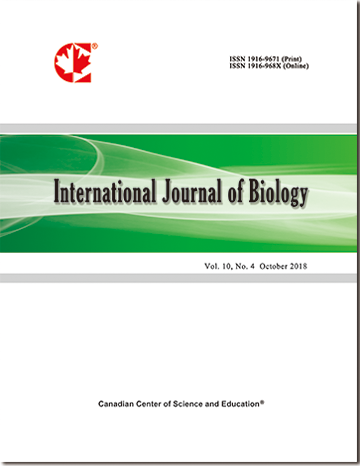Allelopathic Effects of Tithonia diversifolia Extracts on Biochemical Parameters and Growth of Vigna unguiculata
- Tolulope A. OYENIYI
- Oludele O. ODEKANYIN
- Adenike KUKU
- Olutobi O. OTUSANYA
Abstract
Allelopathy has gained much attention in recent times in the sustainable agricultural systems. Allelochemicals released by different plants interact differently with each other, it therefore becomes imperative to study the possible biochemical processes underlying the allelopathy of some plants on other plants. In the present study, investigation was carried out on the phytochemical composition of aqueous and methanolic extracts of Tithonia diversifolia and their allelopathic effect on the growth of Vigna unguiculata. Phytochemical analyses indicated the presence of cardiac glycosides, flavonoids, and alkaloids in the methanolic extract, and in addition anthraquinones and saponins in the aqueous extract. The methanolic extract was found to be more phytotoxic than the aqueous extract; and the seed germination and seedling growth inhibition was concentration dependent. Both the methanolic and aqueous extracts increased significantly the concentration of proline and the level of antioxidant enzymes (superoxide dismutase and catalase) in Vigna unguiculata, while protein concentration and chlorophyll content were significantly reduced. There was however no significant difference in the amount of total soluble sugar. Cytological examination of the root tips of Allium cepa treated with both extracts showed no disparity in mitotic index and there was no chromosomal aberration. The study concluded that the extracts of T. diversifolia affected the seed germination and growth of Vigna unguiculata.
 PDF
PDF
 PDF
PDF
